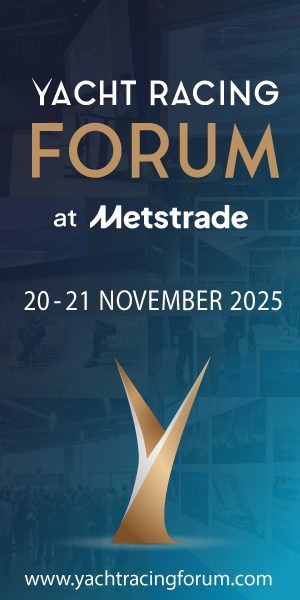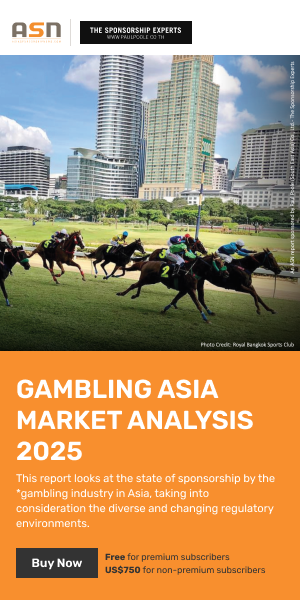Register
to get articles and more to your inbox
News & insights
Archive
Directory
OPINION: The Premier League, Sponsored by…Asia?
At last count, the Premier League had 820 million fans in Asia, spanning the length and breadth of the continent. Put simply, the Premier League has more supporters in Asia than anywhere else.
Asian interest in the Premier League is not new. What is new, however, is the fact that fans in Asia have more money to spend, and more smartphones, tablets and PCs to watch football on, than ever before. The commercial opportunities created by this fanbase have not been lost on Premier League clubs or indeed on Asian brands and broadcasters. Cash-rich brands from Asia are pouring millions of sponsorship dollars into Premier League clubs. Premier League clubs are responding to the opportunity by bolstering their commercial teams to entice brands with increasingly innovative partnership opportunities. Asian broadcasters are in total spending more on broadcast rights than those in any other continent.
This report looks at what is driving these developments, highlights some of the deals that have already been done and considers the challenges and opportunities that lie ahead on both sides of the negotiating table.
Shirt sponsorships
Let’s start with the shirt sponsors.
It is fair to say that Asian brands are rapidly buying up the “shirt real estate” of Premier League clubs. Almost a third of Premier League clubs now have an Asian brand as their main shirt sponsor. The 2013-2014 season sees players from six of the 20 Premier League clubs stepping onto the pitch with an Asian brand emblazoned on their chest.
The proportion is even higher (eight out of 23) if one includes Wigan and QPR, who were relegated at the end of the 2012-2013 but who continue to have an Asian brand shirt sponsor.
Contrast this with the Premier League ten years ago, in the 2003-2004 season, when just one Asian brand was involved as a shirt sponsor, in the form of Chinese telecoms company, Kejian, which sponsored Everton.
Let’s look at the deals that have now been done:
| Club | Shirt Sponsor | Country | Industry |
| Aston Villa | Dafabet | Cagayan, Philippines | Betting and gaming |
| Cardiff City | Malaysia | Malaysia | Tourism |
| Chelsea | Samsung | Korea | Electronics |
| Everton | Chang Beer | Thailand | Alcoholic beverages |
| Swansea City | GWFX | Hong Kong | Financial services |
| Tottenham Hotspur | AIA (cup, full shirt sponsor from next season) | Hong Kong | Insurance |
| Queens Park Rangers* | Air Asia | Malaysia | Airline |
| Wigan Athletic* | 12BET | Cagayan, Philippines | Betting and gaming |
*Relegated 2012-2013
A growing menu of partnership opportunities on offer
The days when shirt, perimeter fence and matchday programme sponsorship were basically all that was on offer to brands are now long behind us. Premier League clubs have bolstered their commercial teams in recent years and there are now more opportunities than ever before for Asian brands to partner with clubs.
Asian brands are starting to invest heavily in an incredibly broad range of sponsorship categories, from the more obvious (such as “Official Beer”) through to the very specific “Official Noodles Partner” (Malaysia’s Mamee and Manchester United) and “Official Car Battery Provider” (Thailand’s GS Battery and Manchester City).
Manchester United is something of a pioneer in this space, with 17 of its 35 global partnerships being with Asian brands. Other clubs are trying to catch up.
The table below underlines just how busy some of the Premier League clubs are when it comes to deal activity in Asia and how they are each taking a different approach to carving up their sponsorship rights.
| Club | Asian partnerships* | Sponsorship Category | Country | Industry |
| Manchester United | Singha | Official Beer | Thailand | Alcoholic beverages |
| Epson | Official Office Equipment Partner | Japan | Electronics | |
| Toshiba | Official Medical Systems Partner | Japan | Electronics | |
| Mister Potato | Official Savoury Snack Partner | Malaysia | Food and beverage | |
| Yanmar | Official Global Partner | Japan | Engineering | |
| Kansai Paint | Official Paint Partner | Japan | Manufacturing | |
| The Hong Kong Jockey Club | Official Partner | Hong Kong | Betting and gaming | |
| Telekom Malaysia | Official Integrated Telecoms Partner Malaysia | Malaysia | Telecommunications | |
| Apollo Tyres | Official Tyre Partner | India | Manufacturing / Tyres | |
| A.P. Honda | Official Motorcycle Partner | Thailand | Automobile | |
| Airtel | Official Telecommunications Partner (limited territories) | India | Telecommunications | |
| Zong | Official Telecommunications Partner (Pakistan) | Pakistan | Telecommunications | |
| Mamee | Official Noodles Partner | Malaysia | Food and beverage | |
| Gloops | Official Social Gaming Partner (Japan) | Japan | Social gaming | |
| Kagome | Official Partner (Japan) | Japan | Food and beverage | |
| TrueMove | Official Mobile Partner (Thailand) | Thailand | Telecommunications | |
| TrueVisions | Official MUTV Broadcaster (Thailand) | Thailand | Broadcasting | |
| Liverpool | Maxxis | Official Partner | Taiwan | Manufacturing / Tyres |
| Garuda Indonesia | Official Partner | Indonesia | Airline | |
| Konica Minolta | Official Partner | Japan | Electronics | |
| Manchester City | LG | Official Digital Display Partner | Korea | Electronics |
| Extra Joss | Official Energy Drinks Partner | Indonesia | Food and beverage | |
| Daihatsu | Official Automotive Partner (Indonesia) | Indonesia | Automobile | |
| est Cola | Official Soft Drinks Partner (Thailand) | Thailand | Food and beverage | |
| GS Battery | Official Car Battery Provider | Thailand | Manufacturing | |
| Tottenham | AIA | Shirt Sponsor (cup, full from next season) | Hong Kong | Insurance |
| Fun88 | Official Partner | Cagayan, Philippines (also Isle of Man) | Betting and gaming | |
| Bosideng | Official Formal Menswear Partner | China | Clothing | |
| Chelsea | Samsung | Shirt Sponsor | Korea | Electronics |
| BNI | Co-branded payment card | Indonesia | Financial services | |
| Vietinbank | Co-branded payment card | Vietnam | Financial services | |
| Nitto Tire | Official Tyre Partner (Thailand) | Thailand | Manufacturing / Tyres | |
| Orico | Official Financial Services Partner (Japan) | Japan | Financial services | |
| Grand Royal Whiskey | Official Whiskey (Burma/Myanmar) | Burma/Myanmar | Alcoholic beverages |
* At “Official Partner” level or above, as featured on the clubs’ official websites. Not an exhaustive list. By way of example, some clubs have done country-specific deals which they do not feature on their list of “Official Partners”.
The Asian Roadshow – Pre-Season Tours to Asia, 2013-2014
The pre-season tour has long represented an insight into a club’s global strategy and the 2013-2014 pre-season further underlines the level of interest of Premier League clubs in Asia.
A total of seven Premier League clubs made the trip to Asia for the 2013-2014 pre-season:
| Club | Matches Played in Asia |
| Arsenal | Indonesia, Vietnam, Japan |
| Chelsea | Thailand, Malaysia, Indonesia |
| Liverpool | Indonesia, Thailand |
| Manchester City | Hong Kong |
| Manchester United | Thailand, Japan, Hong Kong |
| Sunderland | Hong Kong |
| Tottenham Hotspur | Hong Kong |
Unsurprisingly, perhaps, it was the league’s most successful clubs (both financially and in terms of their final league position) that made the trip to Asia. Six of the top seven from the preceding season played their pre-season matches in Asia.
On the other hand, it is also interesting that Sunderland made the trip to Asia. They narrowly avoided relegation in 2012-2013 and are arguably not be what one would usually consider a “global football brand” such as Manchester United. However, their presence in Hong Kong is indicative of the fact that opportunities exist in Asia not just for the biggest football brands but potentially for every Premier League club.
Asian broadcasters betting big on the Premier League
The other (very big) slice of the Premier League revenue pie is of course broadcast rights exploitation.
Again, it’s the fan demand in Asia that is driving broadcasters to invest heavily in Premier League broadcast rights. The Premier League will receive around US $1.5 billion for sale of its broadcast rights in Asia over the 2013 to 2016 seasons. That is an estimated 77% increase on the level it secured between 2010 and 2013. It is also well in excess of the USD $1 billion it will get from Europe.
What is driving this?
It is worth pausing for a moment to consider the factors that are driving all of this activity.
1. The sheer numbers
There are an estimated 820 million Premier League fans in Asia. By Tottenham’s estimation there are 80 million Spurs fans across the continent. Manchester United is understood to have around 100 million fans in mainland China alone. More than 16% of Manchester City’s fans come from Asia (compared to just 3% from the UK). Similar statistics abound. This level of fan engagement is unparalleled anywhere in the world.
2. The economic growth
Asia is undergoing a period of unprecedented economic growth. A growing middle class, with a new disposable income, is emerging in many countries across the continent.
3. A connected continent
Asia is an increasingly a connected continent. Broadband and mobile penetration is growing rapidly. Consumers are accessing content via a range of connected devices. These trends enable owners of football content and rights to communicate with their fans on an enormous scale.
4. A current lack of equivalent events in Asia
For fans, brands and broadcasters, there is just no equivalent to the Premier League in Asia. Although work has been done to develop Asian sporting events (with the Indian Premier League constituting perhaps the biggest success in recent years) there is more work to be done to create events in Asia that are sufficiently engaging for fans, such that brands and broadcasters will invest in them.
5. Asian brands going global
The story is not just of wealthier consumers in Asia but also of cash-rich Asian brands looking to leverage the Premier League’s international appeal to position themselves as truly global brands. Tottenham has successfully tapped into this trend over the last year. Bosideng, a Chinese clothing brand, and AIA, the insurance group that will be its full shirt sponsor from next year, have been open about the fact that an association with a Premier League club can position them as global, not just Asia-centric, businesses.
6. Clubs becoming more commercial
Premier League clubs are becoming more commercial. The most obvious reason is that there are simply more opportunities available to them. The second reason is the Financial Fair Play rules, which effectively require clubs to operate more commercially in generating revenues to invest in their big outgoings such as player transfers.
So where are the biggest challenges and opportunities?
1. A broad range of industry verticals.
Opportunities exist for Asian brands across almost every industry vertical one can imagine. Manchester United is a great example. Amongst the industries represented on its list of sponsors are alcoholic beverages, electronics, medical systems manufacture, instant noodles, tyres, telecommunications, social gaming and even tomato growing. Perhaps the sector that stands out as being slightly under-represented at this point is fashion and retail, although that may change as Asian fashion brands like Uniqlo lead the charge into European and US malls.
2. Online gaming companies: a natural partner?
As one would expect, some industries are more obvious partners for football than others and Asian gaming companies are well represented in the list of Premier League sponsors. Perhaps the only thing stopping Asian gaming companies from playing an even bigger part in the sponsorship of Premier League clubs is the uncertainty over the legal status of online gambling in many Asian jurisdictions. If clarity could be brought to the legality of online gambling then one would expect even more Asian gambling brands to partner with Premier League clubs.
3. A range of different markets
Asia is a region of great cultural and social diversity. In some ways, developed economies like Japan are closer to Europe or the US than they are to other parts of Asia and the commercial opportunities there reflect that. What is interesting, however, is the increasing focus on China and South-East Asia. China’s astonishing growth speaks for itself and it is not surprising that a lot of commercial activity focuses on it. However, South-East Asia is emerging as a real centre of activity. Five of the eight shirt sponsors above are based in South-East Asia (two gaming companies licensed in the Philippines, two Malaysian entities and a Thai entity). Four of the seven 2013-2014 pre-season tours went through South-East Asia.
4. The competition from other leagues
Unsurprisingly, Premier League clubs are not the only ones interested in the opportunities in Asia. Premier League clubs are competing with their European rivals not just on the pitch but also on a commercial level. Barcelona is a good example. It is understood to be investing in setting up a hub in Hong Kong from which to commercialise its brand in Asia. And, guess where Barcelona went for its 2013-2014 pre-season tour?
5. The multi-platform opportunity for clubs
The explosion in connectivity and the use of connected devices creates a clear opportunity for clubs to communicate directly with their fans. Liverpool’s Managing Director, Ian Ayre, sums up the challenge for clubs to get to know their fans and how technology is enabling this for the first time: “Clubs know they have millions of fans but they don’t genuinely know who they are. We can draw them into a richer relationship. We can give them what they want – kit, merchandise, tickets – but we can only do that if we generate a proper relationship with them”. Online channels are the key enablers here – particularly social media and official club websites. Liverpool, for example, recently announced plans to launch a Chinese language site. Others will undoubtedly follow.
6. The multi-platform opportunity for content owners
Owners of Premier League rights have an opportunity in Asia to commercialise their content across more platforms and devices than ever before. In Indonesia, Vietnam and Japan, BalBall.com is a streaming service that offers clips of Premier League matches for free on an ad-supported basis. New Zealand’s Coliseum launched the first streaming-only offering for the Premier League for the 2013-2014 season, catering to the growing demand for content away from the TV set. Although TV will remain the primary viewing habit for Premier League content for the foreseeable future, innovation in delivery mechanisms should unlock new revenue streams for broadcasters and advertisers alike.
7. The piracy and counterfeiting challenge
One of the biggest challenges facing the Premier League in Asia, like any other rights holder, is the prevalence of piracy and the relatively weak regimes in place to enforce intellectual property rights in many Asian countries. Piracy in Asia is high by any global standard and it will continue to impact the value of TV rights in the region (since broadcasters will typically be more reluctant to pay for exclusive content if they know that their viewers may end up watching the content on a pirate service). Likewise, clubs will have to work hard to protect their own IP portfolios to ensure that valuable revenues from merchandising are not channelled into counterfeit products.
Conclusions: the Asia opportunity is here to stay
The pull of the Premier League for Asian fans is extraordinary and shows no sign of abating. However, fan engagement is only one part of the story here. The fans have always been there but it is only in recent years that commercial activity in Asia has really taken off.
More than anything else, it is the fact Asia is in a period of unprecedented economic and technological development that is unlocking new opportunities for clubs, brands and broadcasters alike. The region’s population is relatively young, increasingly affluent and increasingly connected, and the Premier League’s global brand is proving to be an incredibly effective platform for engagement with these fans.
For Asian brands and broadcasters, there is a clear opportunity to tap into fans’ engagement with the world’s most-watched sporting league. For Premier League clubs, meanwhile, the opportunity is to commercialise their brands in Asia via strategic partnerships, sponsorship deals and direct engagement with fans.
Commercial activity in the region is finally shifting out of its “experimental” stage and there is now a real sense that the Asia opportunity is here to stay.
Courtesy of Matt Pollins on ConnectedAsia.com. Matt is an international lawyer at Olswang Asia with a focus on tech, media, gaming and sport
Sources: Tables above are based on a range of data: http://www.myfootballfacts.com/Premier_League_Shirt_Sponsors.html, Official club websites, Repucom data on market size.












